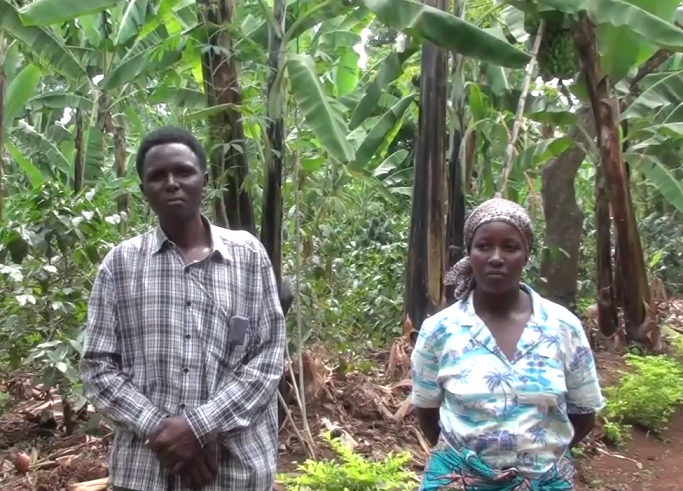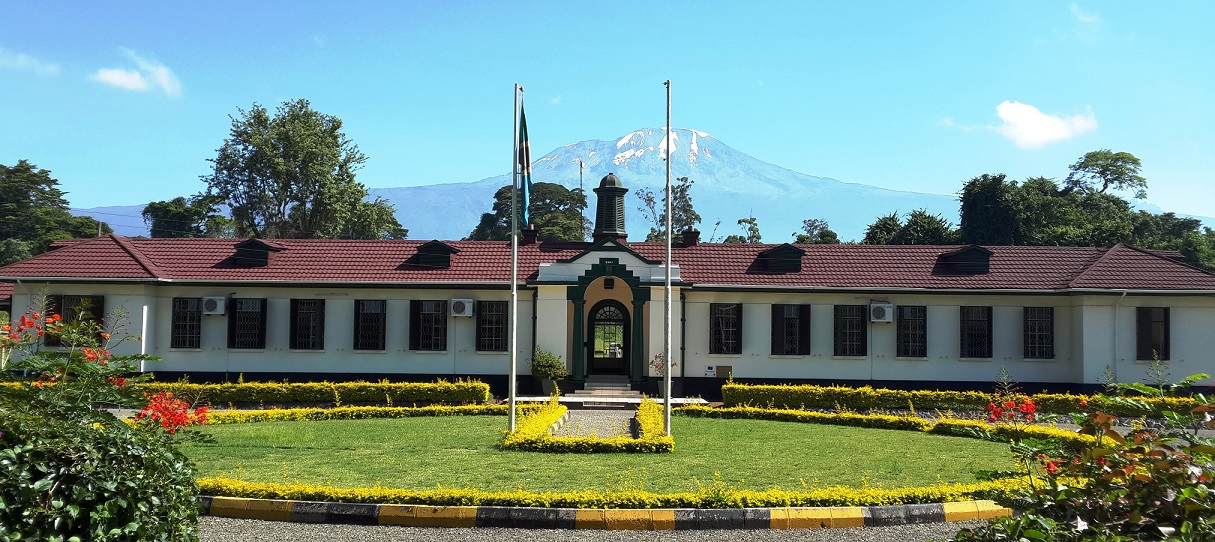As soon as the seedlings are ready for planting, women in brightly coloured clothes wrapped at the waist load the new disease resistant varieties of coffee seedlings into the back of a truck. Developed at the Tanzania Coffee Research Institute, these small plants promise to increase coffee production while reducing costs of production for growers across the country and farmers can’t buy up the new coffee plants fast enough.
Coffee is Tanzania’s largest export crop and most of the beans that leave the country are grown by smallholder farmers. But since the 1990s, coffee output has declined largely due to a series of diseases that slashed yields, increased operating costs for farmers and saw quality and coffee prices tumble. Coffee growing became an unprofitable business. But all that started to change when the Tanzania Coffee Research Institute (TaCRI) began operations in 2001.
|
The EU has supported TaCRI since its inception, providing some 44% of the organisation’s running costs. Another 40% comes from coffee growers and the rest is made up by the government of Tanzania and other sources. The aim is to increase the ability of smallholder coffee growers to consistently produce increased volumes of high quality coffee and improve their access and competitiveness in the market. This support builds on previous EU support to TaCRI, which has helped to improve coffee production and quality. For more information, visit DEVCO's project page. |
“I came to know of TaCRI when I saw new varieties of coffee in my neighbour’s farm and was told that there were new varieties resistant to disease,” said coffee farmer Didas Mallya. “Now I only buy seedlings direct from TaCRI or TaCRI assisted nurseries.”
Didas and Frida Mallya
Mr Mallya’s coffee farm used to be planted with traditional varieties that were highly susceptible to disease, forcing him to spend much of his limited income on chemicals in a bid to protect his crop. But he’s ripped all those trees out, replaced them with new TaCRI-developed varieties and is very pleased with the results.
"Production has increased and costs have gone down as I don’t have to use chemicals to keep the plants healthy,” said Mr Mallya, who has two children and tends the coffee farm with his wife, Frida.
Mr Mallya together with some other young coffee growers have come together to form their own group to sell their coffee directly to the Tanzania Coffee Board, which handles exports of the country’s coffee production.
|
Lessons learnt from designing and implementing the project
|
Both Arabica and Robusta coffee varieties are grown in Tanzania in eastern Africa and both varieties suffered from disease. The Arabica bean, which makes up around 70% of Tanzanian coffee production, suffered from coffee leaf rust and coffee berry disease, while the Robusta variety was struck by coffee wilt disease. As a result, Tanzanian coffee production in the 1990s fell by around 80% according to TaCRI officials.
“We have been very successful,” said James Teri, Chief Executive Director of TaCRI. “We have developed Robusta and Arabica coffee hybrids which combine high productivity with good, rich [taste] quality and resistance to disease.”
“The challenge we are facing now is the accelerated multiplication of seedlings of these high yielding varieties to meet the high demand,” said Prof. Teri.
Over 51,323,308 hybrid seedlings have been multiplied and distributed to growers in the last 10 years, enough to replant about 38,559 hectares or 19% of the coffee area in Tanzania. “A lot remains to be done to replace all the low yielding coffee varieties that are highly susceptible to diseases with the new varieties for the benefit of all players in the coffee value chain,” said Prof. Teri.
TaCRI's main building in front of Mount Kilimanjaro
TaCRI have developed 23 new disease resistant coffee varieties. However, the process of multiplying these new varieties for planting on farms across the country takes time. In addition, it can take 18 months for the new varieties to start production compared to 36 months for the traditional varieties.
To speed up the process, TaCRI is not only selling seedlings but teaching farmers how to multiply their new varieties themselves. As they are hybrid plants, the new coffee varieties cannot reproduce from seeds so the farmers have to be trained in grafting and clonal propagation techniques.
Grafting refers to the process of attaching cuttings to living trees so that they grow as new seedlings, while clonal propagation is the removal of some new growth, a cutting, that is then encouraged to develop roots so that it can be planted as a new seedlings identical to the parent plants.
|
Key factors behind the programme’s success
|
The programme has emphasised technology transfer and training using a participatory farmer-to-farmer extension model, with strong emphasis on training of trainers (ToTs) and village based training (VBT). To date 379,017 coffee growers and 10,783 extension officers have received training.
“We have built local leadership by training 3,849 farmer promoters (leaders) who train their other farmers on good agricultural practices and hence contributing to increased productivity (yields), quality and area planted with new improved coffee varieties,” said Prof. Teri.
With EU support, TaCRI has established itself as a responsive organization, listening to the needs of the country’s coffee farmers and meeting their requirements. “The EU support helped the institution to transform from a government controlled body,” said Prof. Teri, “to a stakeholder owned and managed body.”
Based on the lessons learned from the programme, Prof. Teri believes it could be replicated in other coffee-producing countries. “TaCRI’s research and development priorities are of global importance - each coffee producing country is putting strong emphasis on coffee replanting programmes with high yielding, disease resistant coffee varieties with good beverage quality.”
|
Further viewing - Visit our blog in the ROSA group to watch videos of:
|
This collaborative piece was drafted with input from Raymond Lataste from DEVCO and Prof. James Teri from TaCRI, with support from the capacity4dev.eu Coordination Team.





Log in with your EU Login account to post or comment on the platform.